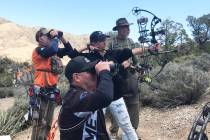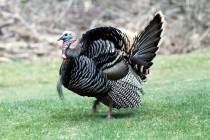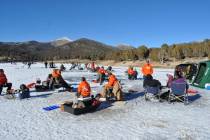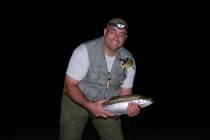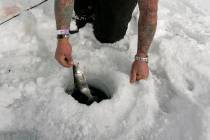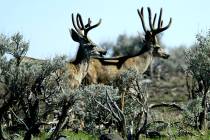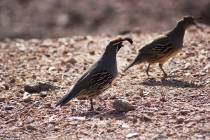Duck hunters singing out for cold weather front
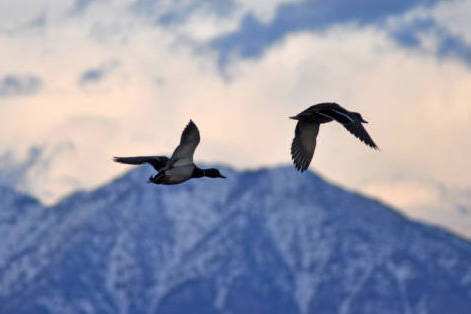
The other day I found myself singing the Chipmunks’ holiday favorite, “All I Want for Christmas is My Two Front Teeth.” Then I thought about the unseasonably warm weather and blue bird skies that have settled over Southern Nevada and are beginning to wear on the nerves of duck hunters.
If they could change the words of that song, perhaps they might sing, “All I Want for Christmas is a Cold Weather Front.” And somewhere in the lyrics they might add something about wanting wind, rain and otherwise nasty weather. Then, to finish it off, perhaps our duck hunters would sing, “If I could only have a cold weather front, then I could bag a mess of mallards.”
For most of us, hunkering down in a duck blind with wind-blown rain kissing the side of your face doesn’t sound like much fun, but for serious duck hunters, that and cloud cover is just what they want.
All wildlife is affected by changes in weather, and ducks are no different. A steady rain, for example, will push mule deer into cover. If there are pine trees around, they will use their bows as a natural umbrella. That’s something to think about during deer season.
Ducks, on the other hand, will stop feeding during the nighttime hours and start moving more in the morning and late afternoon. That increased movement can be a boon to hunters, as it provides more shooting opportunity.
Another benefit of cloud cover is the resulting lack of sunlight. It’s not that the sun goes away, obviously, but the clouds tend to act like a natural diffuser. Instead of having direct sunlight that can highlight a hunter’s upturned face or reflect off a gun barrel, the sunlight is softened and spread out. As a result, ducks have a much harder time picking out waiting hunters and their movements.
I spoke with two duck hunters at different times in recent days. Both had seen some influx of migrating birds, but they hadn’t seen many. Both said the Key Pittman Wildlife Management Area at Hiko had more birds than they had seen at the Overton WMA, but even those were limited.
After hunting at Overton on Sunday, a hunter using the name M.C. posted this report on the Ducks Unlimited Migration Map (ducks.org): “Definitely some new birds here. They are a little call shy and a little decoy shy. Clear skies make it a little tougher, but mornings are cold. Best shooting was about 40 minutes before shoot time ended.”
D. Addington added his two cents. He reported that there is no migration and only a few local birds. Still, three hunters bagged three birds. “One drake mallard, one drake gadwall and one drake wigeon. All single birds that decoyed into range but flared at the last minute. Not fully committed,” he wrote.
One of the problems that manifests itself when duck hunting is slow at Overton is the bad hunter habit of sky busting. This happens when hunters grow impatient and even fearful that another hunter might bag a bird if they don’t shoot it first, no matter how far out of range the bird might be flying.
So, rather than demonstrating a little hunter etiquette, they squeeze the trigger on their shotguns with little chance of doing anything more than scaring high-flying birds. Or worse yet, wounding a bird they will never retrieve.
According to the National Weather Service forecast, we can expect cooler temperatures this weekend with cloudiness Saturday morning. Waters in Northern Utah are freezing up, so it shouldn’t be long before birds that are still holding on open water have no choice but to move this direction.
In the meantime, does anyone want to join me in one verse of “All I Want for Christmas?”
Freelance writer Doug Nielsen is a conservation educator for the Nevada Department of Wildlife. His “In the Outdoors” column, published Thursday in the Las Vegas Review-Journal, is not affiliated with or endorsed by the NDOW. Any opinions are his own. Find him on Facebook at @dougwritesoutdoors. He can be reached at intheoutdoorslv@gmail.com.
Local calendar
— Utah is accepting applications for its 2018 limited-entry turkey permits. The deadline is Dec. 27. For more information, go to wildlife.utah.gov.





